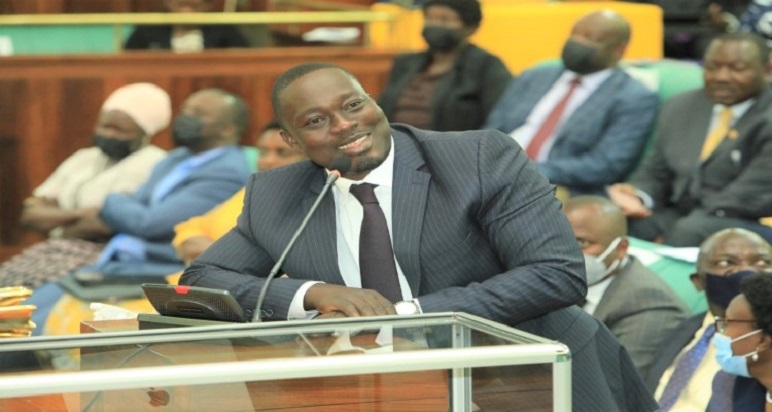The International Monetary Fund (IMF) has given Uganda a clean bill of health regarding the handling of the COVID-19 pandemic, the funds and the economy as a whole.
For this, the Fund’s board has allowed for the immediate release of 127 million US Dollars (about 455 billion Shillings) for the country as part of the Extended Credit Facility Arrangement. The latest disbursement brings the total under this arrangement to about 1.38 trillion Shillings.
In June last year, the IMF Board approved 722 million Special Drawing Rights (an equivalent of about USD 1 billion) under the Extended Credit Facility arrangement for Uganda, to help the country overcome the effects of the COVID-19 pandemic. And the approval enabled the immediate disbursement of 258 million USDollars (about 924 billion shillings) then.
Under the Extended Credit Facility Arrangement, the approval of the next disbursement depends on how well the country utilized the previous one, in terms of allocating them to where they are due, completing reforms and other commitments agreed to, among others. Following a review of Uganda by the IMF staff that ended in December 2021, the government was found satisfactory in performance in most criteria.
The fund also aims at boosting more inclusive private sector-led long-term growth, targeting reforms focusing on prioritizing social spending, sustaining debt, strengthening governance, and enhancing the monetary and financial sector frameworks.
“The Ugandan authorities are implementing their reform agenda steadfastly, in a complex environment still marked by the pandemic, and remain committed to the Extended Credit Facility Arrangement,” the IMF says, adding that the authorities skillfully managed the second wave of the pandemic in July last year, which implied a lower growth rebound, and some additional financial support to cushion the revenue shortfall from the lockdown and expand cash transfers to the vulnerable.
According to the Fund, the Ugandan authority has managed to keep the economy afloat, expanding by 3.8 per cent in 2021/22, though it is expected that the government’s expenditure over its revenues, will be higher than planned due to slow economic growth. The Fund notes that in spite of a challenging environment and some technical and legislative delays, all quantitative performance criteria were met, and the reform agenda implementation is progressing.
“The Ugandan authorities remain firmly committed to their economic program amidst a challenging environment. Program performance has been satisfactory. All quantitative targets were met, except one, and all but three structural benchmarks for 2021 were completed,” said Bo Li, IMF Deputy Managing Director at the end of the negotiations.
There was some reallocation of resources, which the fund says, was necessary to mitigate the impact of the pandemic’s second wave and address higher security tensions. The security situation influenced by terrorist bombs in the country and a threat from the ADF rebels saw Uganda mobilise resources to launch a military offensive in DR Congo.
“Returning to the programmed fiscal consolidation path remains essential to keep debt sustainable while creating more space for private sector credit,” Li reminded the country. The IMF says enhanced domestic revenue mobilization, rationalization of non-priority spending, and shifting the composition of spending towards priority social areas will help achieve the fiscal objectives and address Uganda’s large development needs.
But it also urges the government to reduce supplementary spending. The Ministry of Finance, Planning and Economic Development welcomes the review report, saying their spending was more restrictive, despite emergencies over the period that needed immediate mobilization of new resources.
“Debt sustainability is one of our focuses, and we have managed to keep out Debt-to-GDP ratio at the lowest in the region. We are reducing commercial borrowing as much as possible, and going for concessional loans,” says Ramathan Ggoobi, the Permanent Secretary, Ministry of Finance.
Julius Mukunda, the Chief Executive, Civil Society Budget Advocacy Group, CSBAG admits that considering the global and domestic circumstances, economically the country has performed well, especially at the macro level.
Despite a positive result of the IMF review, the government has been accused of shortcomings regarding the management of funds meant for the COVID-19 pandemic. According to the Auditor General’s Report, for example, a total of 676 billion Shillings was allocated and disbursed to various ministries, departments and agencies to settle domestic arrears with a view of improving liquidity within the local business community.
“I noted that 90 per cent of funds used appropriately for the intended purpose; however, I noted diversion of funds to pay for unrelated expenditure worth 4.897 billion shillings, unsupported domestic arrears of 27.38 billion and Payment for contested or rejected domestic arrears of 1.245 billion.
“I also noted that 33.8 Billion Shillings (5 per cent) was used to settle international obligations thus did not contribute to the stated objective since the funds were externalized,” says the 2021 report. On his part, Mukunda agrees that on the operational side, the country has not done well, mainly because of corruption, which affected the delivery of social services.
In May 2020, the IMF approved about 491.5 million US Dollars (about 1.76 trillion Shillings) under another arrangement; the Rapid Credit Facility (RCF) to finance the health, social protection and macroeconomic stabilization measures, meet the urgent balance-of-payments and fiscal needs arising from the COVID-19 outbreak and catalyze additional support from the international community.”
-URN





